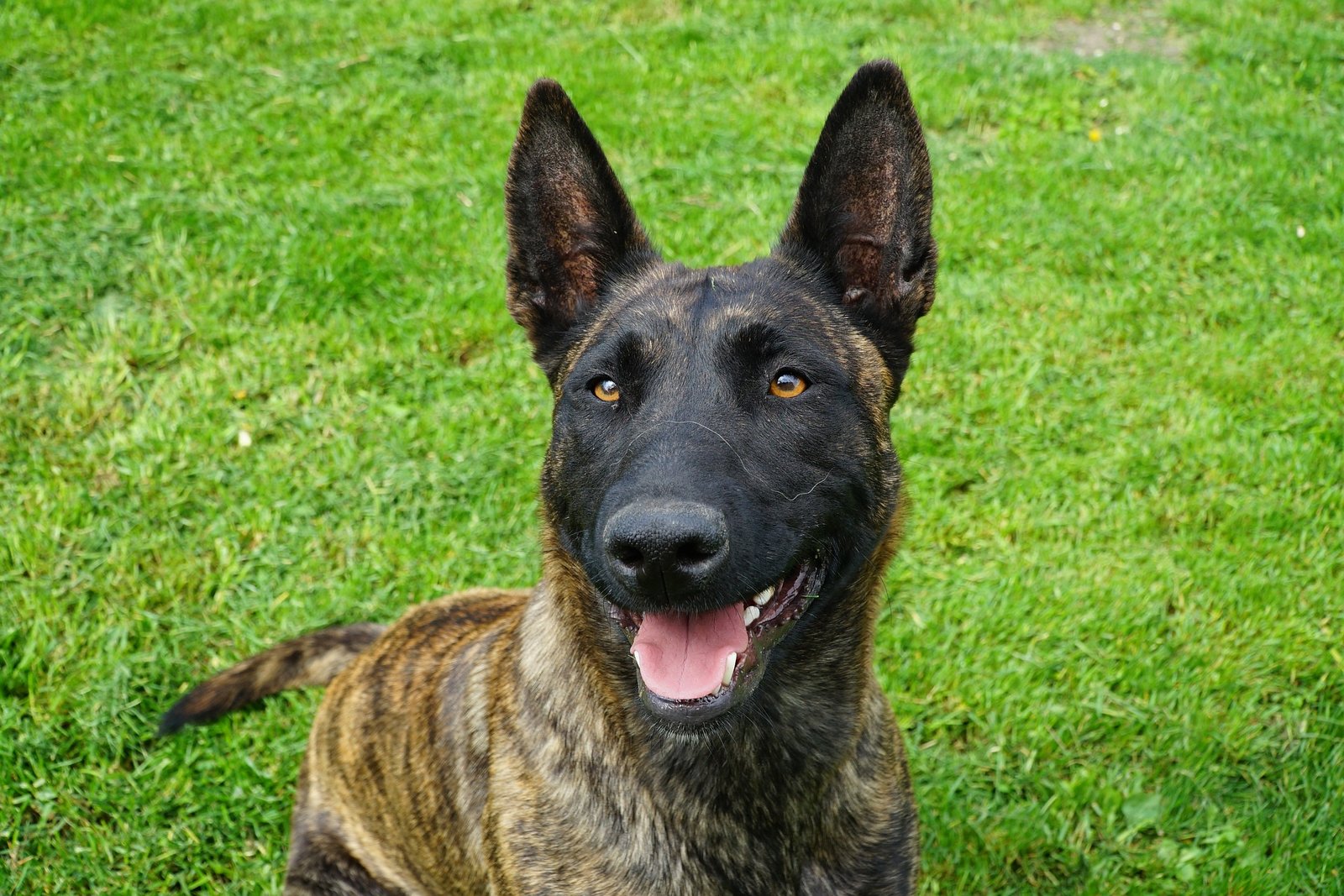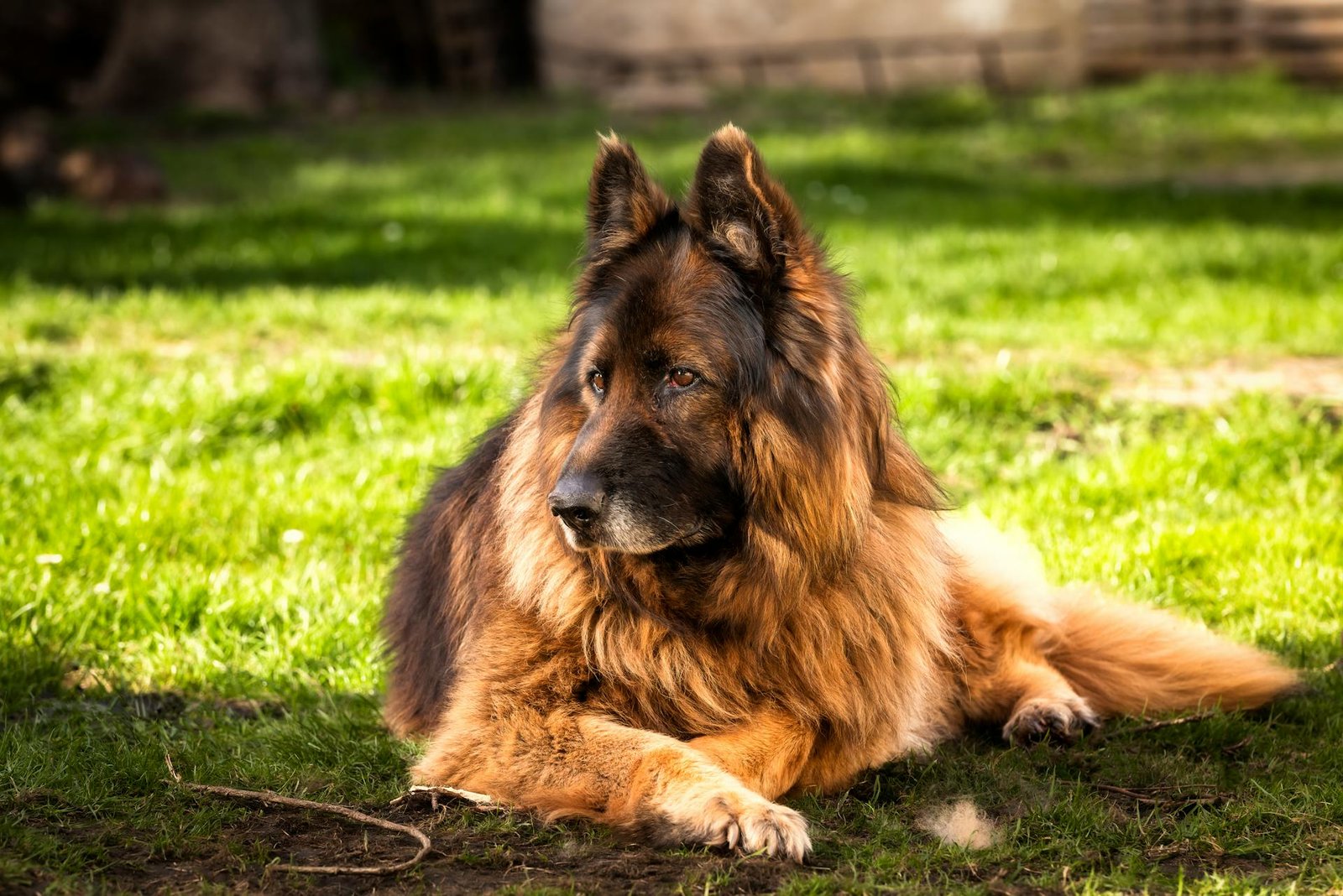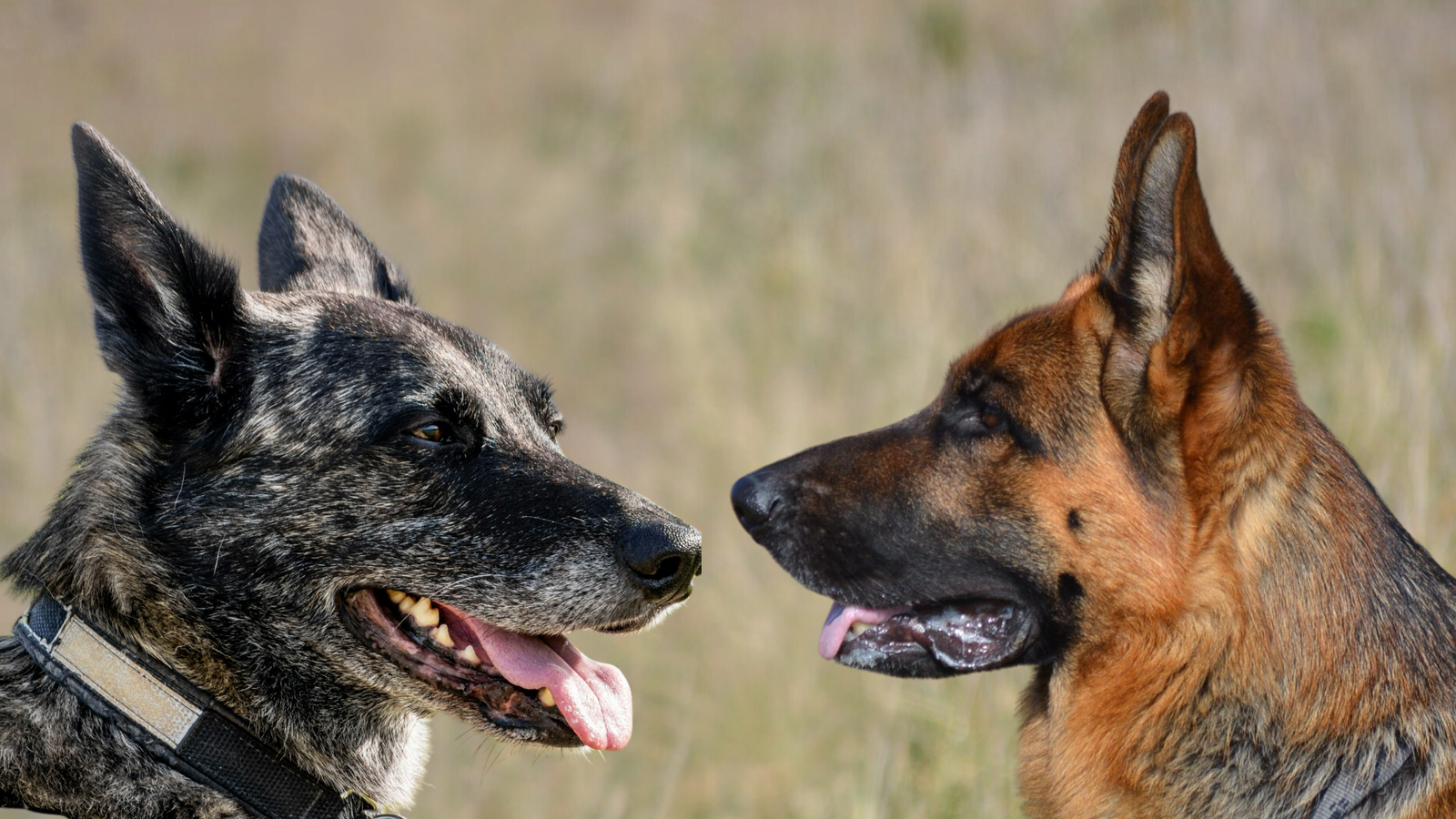Are you trying to decide whether a Dutch Shepherd or a German Shepherd would make the perfect canine companion for you? Both breeds are renowned for their intelligence, loyalty, and versatility, making them popular choices among dog owners, pet lovers, and breed enthusiasts.
When comparing Dutch Shepherd vs German Shepherd, one key difference lies in their temperaments, with Dutch Shepherds being slightly more independent while German Shepherds are known for their strong protective nature.
When considering German Shepherd vs other breeds, German Shepherds often excel in areas such as trainability, versatility, and their strong protective instincts.
In this blog post, we’ll take an in-depth look at these two incredible breeds, comparing their origins, physical characteristics, temperaments, training needs, health concerns, and more. By the end, you’ll have a clearer understanding of which breed is the best fit for your lifestyle and preferences.
- Origins and History
- Physical Characteristics
- Dutch Shepherd vs German Shepherd Temperament Face-Off
- Training and Intelligence
- Exercise Needs and Energy Levels
- Health Concerns and Lifespan
- Maintenance and Care Requirements
- Dutch Shepherd vs German Shepherd Which Breed is Right for You?
- Conclusion: Choosing Your Perfect Shepherd Companion
- Frequently Asked Questions
Origins and History
The Dutch Shepherd hails from the Netherlands, where it was originally bred to be a versatile farm dog. Historically, these dogs were used for herding sheep, guarding property, and pulling carts. Their adaptability and hardworking nature made them invaluable to Dutch farmers.
Today, the Dutch Shepherd remains a rare breed, but it has gained recognition for its exceptional working abilities and loyal temperament.

The German Shepherd, on the other hand, has a rich history that dates back to the late 19th century in Germany. Max von Stephanitz, a German cavalry officer, is credited with developing the breed by selecting dogs with superior intelligence, strength, and working capacity.
German Shepherds quickly became famous for their roles in police, military, and search-and-rescue operations. Their impressive legacy continues to this day, making them one of the most recognizable and beloved dog breeds worldwide.

Physical Characteristics
Size and Build
| Breed | Height (inches) | Weight (pounds) | Build |
|---|---|---|---|
| Dutch Shepherd | 21.5 to 24.5 | 42 to 75 | Well-proportioned, athletic |
| German Shepherd | Males: 24 to 26, Females: 22 to 24 | 50 to 90 | Strong, muscular |
Coat Types and Colors
| Breed | Coat Varieties | Coat Colors/Pattern | Distinctive Features |
|---|---|---|---|
| Dutch Shepherd | Short-haired, Long-haired, Rough-haired | Gold or Silver Brindle | Striking brindle pattern |
| German Shepherd | Short or Long Double Coat | Black and Tan, Sable, Black, White | Iconic appearance |
Did You Know?
Breed Rareness German Shepherds consistently rank in the top 3 most popular dog breeds in the US, according to Forbes statistics. In contrast, Dutch Shepherds are much rarer, often not even making it into the top 100 list, making them a unique choice for dog enthusiasts.
Related Reading
Types of German Shepherds
German Shepherd vs Australian Shepherd
German Shepherd vs Belgian Shepherd
German shepherd vs King Shepherd
German Shepherd vs Shiloh Shepherd
German Shepherd vs White Shepherd
German Shepherd vs Swiss Shepherd
German Shepherd vs Bohemian Shepherd
German Shepherd vs Anatolian Shepherd
Dutch Shepherd vs German Shepherd Temperament Face-Off
Personality Traits
| Trait | Dutch Shepherd | German Shepherd |
|---|---|---|
| Intelligence | High | High |
| Loyalty | Known for loyalty | Known for loyalty |
| Personality | Independent, alert, versatile | Courageous, confident, strong work ethic |
| Trainability | Highly trainable | Highly trainable |
| Roles | Herding, protection work | Guard dogs, family companions |
| Interaction with Strangers | May be aloof with strangers | May be aloof with strangers |
| Family Bonds | Forms strong bonds, versatile roles | Forms strong bonds, eager to please |
Family Compatibility
| Aspect | Dutch Shepherds | German Shepherds |
|---|---|---|
| Family Compatibility | Fantastic family pets with proper training and socialization | Great family dogs with proper training |
| Adaptability | More adaptable; thrive in various environments (apartments to large homes) | May require more space and exercise |
| Affection | Affectionate with families; enjoy being part of daily activities | Known for protective instincts; gentle and loving with proper training |
| Living Environment | Suitable for both apartments and homes with yards | Prefer more space due to exercise needs |
| Protectiveness | Protective to an extent | Strong protective instincts, ensuring the safety of loved ones |
| Interaction with Children | Can be loving companions for families with children | Can be gentle companions for families with children |
Did You Know?
While both were herding dogs, Dutch Shepherds were often used to herd larger animals like cows, while German Shepherds were primarily sheep herders. This influenced their working styles and physical builds
Interaction with Children and Other Pets
Both breeds generally do well with children and other pets, but early socialization is key. Dutch Shepherds are typically gentle and patient with children, making them excellent playmates. They can also coexist peacefully with other pets if introduced properly.
German Shepherds, with their strong protective instincts, can also be great wih children. However, their size and energy levels mean they should always be supervised around young kids. Proper socialization will ensure they get along well with other pets, including cats and smaller dogs.
Related Reading
German Shepherd vs Blue Bay Shepherd
German Shepherd vs Doberman
German Shepherd vs Rottweiler
German Shepherd vs Husky
German Shepherd vs Coyote
German Shepherd vs Golden Retriever
German Shepherd vs Pitbull
German Shepherd vs Cane Corso
German Shepherd vs Akita
German Shepherd vs Border Collie
Training and Intelligence
Trainability Comparison
| Breed | Intelligence & Trainability | Skills & Talents | Usage |
|---|---|---|---|
| Dutch Shepherd | Highly intelligent, quick learners, eager to work | Excels in obedience, agility, and various dog sports | |
| German Shepherd | Equally intelligent, suited for extensive training | Thrives on mental stimulation, enjoys learning tasks | Used in police, military work; versatile for many activities |
Working Roles and Capabilities
| Breed | Histort and Roles | Characteristics | Common Uses |
|---|---|---|---|
| Dutch Shepherd | Versatile working dogs with a history in herding, search and rescue, and protection | Agile, intelligent | Law enforcement, military |
| German Shepherd | Renowned for working capabilities; used in police, military, search and rescue, service dogs | Strong, intelligent, loyal | Police, military, search and rescue, service dogs |
Exercise Needs and Energy Levels
Both the Dutch Shepherd and the German Shepherd are high-energy breeds that require regular exercise to stay happy and healthy. Dutch Shepherds are known for their stamina and agility. They thrive on activities that challenge them both physically and mentally. Daily walks, playtime, and engaging in dog sports are essential to keep them satisfied.
German Shepherds also have high energy levels and need plenty of exercise to prevent boredom and destructive behavior. They enjoy activities such as running, hiking, and playing fetch. Regular exercise not only keeps them physically fit but also helps to channel their energy in a positive way.
Health Concerns and Lifespan
| Breed | Lifespan | Common Health Issues | Preventative Measures |
|---|---|---|---|
| Dutch Shepherd | 11-14 yrs | Hip dysplasia, allergies, genetic conditions | Regular check-ups, balanced diet, proper exercise |
| German Shepherd | 9-13 yrs | Hip/elbow dysplasia, degenerative myelopathy, bloat | Regular check-ups, balanced diet, proper exercise, weight management |
Did You Know?
In 2015, a Dutch Shepherd named Diesel sacrificed her life in a police raid in Paris, highlighting the breed’s dedication in service roles. Similarly, German Shepherds have a long history of military and police service worldwide.
Related Reading
German Shepherd vs Alsatian
German Shepherd vs Boxer
German Shepherd vs Calupoh
German Shepherd vs Giant Schnauzer
German Shepherd vs Police Dog
German Shepherd Working Dog vs Show Dog
German Shepherd vs Grey Wolf
German Shepherd vs Mountain Lion
Can a German Shepherd Kill a Coyote?
Can a German Shepherd Kill a Wolf?
Maintenance and Care Requirements
Grooming Needs
| Breed | Coat Type | Grooming Frequency | Grooming Purpose |
|---|---|---|---|
| Dutch Shepherd | Short Coat | Minimal | Maintain cleanliness and health |
| Dutch Shepherd | Long/ Rough Coat | Frequent | Prevent matting, maintain cleanliness and health |
| German Shepherd | Double Coat | Regular | Reduce shedding, prevent tangles, maintain health |
| German Shepherd | During Shedding | More Frequent | Control shedding, prevent tangles, maintain health |
Nutritional Requirements
Proper nutrition is essential for both breeds to maintain their health and vitality. Dutch Shepherds and German Shepherds benefit from high-quality dog food that meets their specific dietary needs. A balanced diet that includes protein, healthy fats, and essential vitamins and minerals is crucial.
Consulting with a veterinarian can help determine the best diet for your dog based on their age, weight, and activity level. Providing fresh water at all times and monitoring their weight to prevent obesity are also important aspects of their care.
Exercise Routines
Both breeds require regular exercise to keep them physically and mentally stimulated. Dutch Shepherds enjoy activities such as agility training, obedience exercises, and playing fetch. They thrive on mental challenges and enjoy tasks that engage their problem-solving skills.
German Shepherds benefit from activities that provide both physical and mental stimulation. Long walks, running, and interactive games keep them happy and healthy. Engaging in dog sports such as Schutzhund or obedience trials can also help channel their energy and intelligence.
Dutch Shepherd vs German Shepherd Which Breed is Right for You?
Lifestyle Considerations
Choosing between a Dutch Shepherd and a German Shepherd depends on your lifestyle and preferences. Dutch Shepherds are adaptable and can thrive in various living environments, making them suitable for both urban and rural settings. They require regular exercise and mental stimulation to prevent boredom.
German Shepherds, with their strong protective instincts, are well-suited for families and individuals who can provide ample exercise and training. They may require more space and time commitment, but their loyalty and versatility make them excellent companions.
Cost of Ownership
Owning a dog involves various costs, including food, grooming, veterinary care, and training. Dutch Shepherds may have slightly lower grooming costs, especially if they have short coats. However, both breeds require high-quality dog food and regular veterinary check-ups to ensure their health.
Training and socialization are essential for both breeds, and investing in professional training classes can be beneficial. Additionally, considering pet insurance can help manage unexpected medical expenses.
Conclusion: Choosing Your Perfect Shepherd Companion
In conclusion, both the Dutch Shepherd and the German Shepherd are exceptional breeds with unique qualities and characteristics. The Dutch Shepherd’s versatility, adaptability, and striking brindle coat make it a standout choice for those seeking a hardworking and loyal companion.
On the other hand, the German Shepherd’s legacy of excellence, intelligence, and protective nature make it a popular and beloved breed worldwide. When comparing the Dutch Shepherd vs German Shepherd, one might find the former excels in agility and endurance, while the latter is renowned for its guarding and service abilities.
Ultimately, the best breed for you depends on your lifestyle, preferences, and ability to meet their needs. Whether you choose the Dutch Shepherd or the German Shepherd, you’re sure to gain a loyal, intelligent, and loving companion who will enhance your life in countless ways.
Considering adding one of these incredible breeds to your family? Take your time to research, visit breeders or rescue organizations, and consult with professionals to ensure you make the best choice for your unique situation. Happy dog owning!
Related Reading
Dog that looks like a German Shepherd but Smaller
Dog that looks like a German Shepherd but Bigger
German Shepherd and Saint Bernard
European GSD vs American GSD
Dogs that look like German Shepherds
German Shepherd Similar Breeds
German German Shepherd vs American German Shepherd
Frequently Asked Questions
German Shepherds are known for their versatility and popularity, while Dutch Shepherds are more agile and have a distinct brindle coat. Both breeds excel in working roles, but their temperaments and appearances differ.
The Dutch Shepherd is primarily derived from the German Shepherd, Belgian Shepherd, and various herding dogs, resulting in its unique traits and abilities. This breed was specifically developed for herding and working purposes.
Breeds like the Rottweiler and Mastiff are often considered stronger than German Shepherds due to their size and muscle mass. However, strength can vary by individual dogs and their training.
Yes, Dutch Shepherds are known for their friendly and loyal nature, making them great family pets and companions. They tend to bond closely with their owners and are generally good with children.
Dutch Shepherds are rarer than other breeds due to their specific breeding for herding and working purposes, leading to less widespread popularity. Their unique traits make them sought after in certain niches but less common as general pets.
